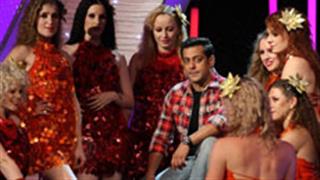Establishing an emotional connect between the fly and the audience was the biggest challenge for Pete Draper, the brain behind creating the housefly character in Telugu film "Eega", releasing in Hindi as "Makkhi"
Friday.
Co-founder of US-based Makuta VFX, Draper, who hails from London, worked with as many as 13 experts and a huge team of animators to create the adorable fly for "Eega" that created history at the box office by
garnering a whopping Rs.17 crore on its first day.
"Our biggest challenge was to make the audience emotionally connect with the character. Since there was little facial features for us to play with to display emotion, we took reference from silent movies, " Draper told.
"We wanted the design of the fly to be unique. He shouldn't be ugly. Viewing a normal fly 40 feet in size on a big screen will make the audience lose their popcorn and have kids screaming for the exit, so even though
the body was based on a real fly, the head was toned down, " he added.
"Eega", a revenge story, rocked the box office and set the cash registers ringing. Now, "Makkhi" will narrate the story of a man who is killed and is reincarnated as a housefly to avenge his death.
How long did the project take and how many designers were involved?
"The fly was designed by three concept artists, three modellers, two shader designers, two hair and fur designers, three riggers and numerous animators. Due to different versions, it took almost eight-nine months to
finalise the design, " said Draper who has a bachelor's degeree in IT.
"The initial body and wing shape got locked first and this was followed by the head and fur. We were refining the design daily and even worked on clay models on the set to finish the design as soon as possible", he
added.
Directed by S.S. Rajamouli, the innovative and technically brilliant "Eega" was made on a budget of Rs.30 crore.
Draper, who teaches VFX and animation in various colleges in London and has an office in Hyderabad too, was slightly apprehensive when "Eega" released July 6.
"Yes, I was apprehensive. The response from the trailer and audio launch had been positive so the apprehension was reduced; however, there is always a nerve-racking time during the first couple of days.
"We knew we have created a good work but were unsure if the audience was ready for it; it turned out it was, " he said.
Wanted audience to connect with fly: 'Makkhi' designer
Friday, October 12, 2012 13:57 IST




















